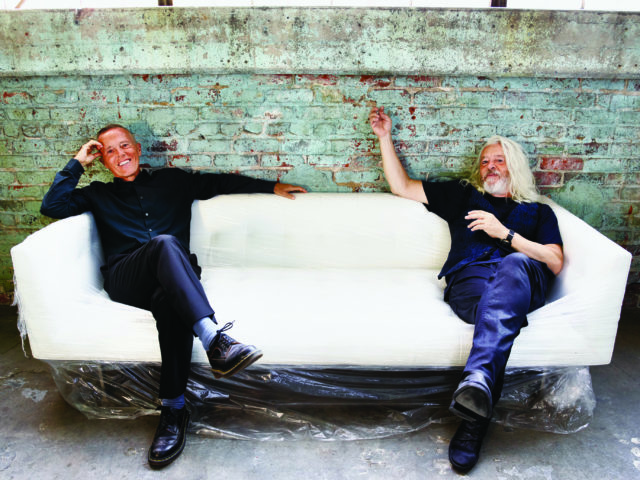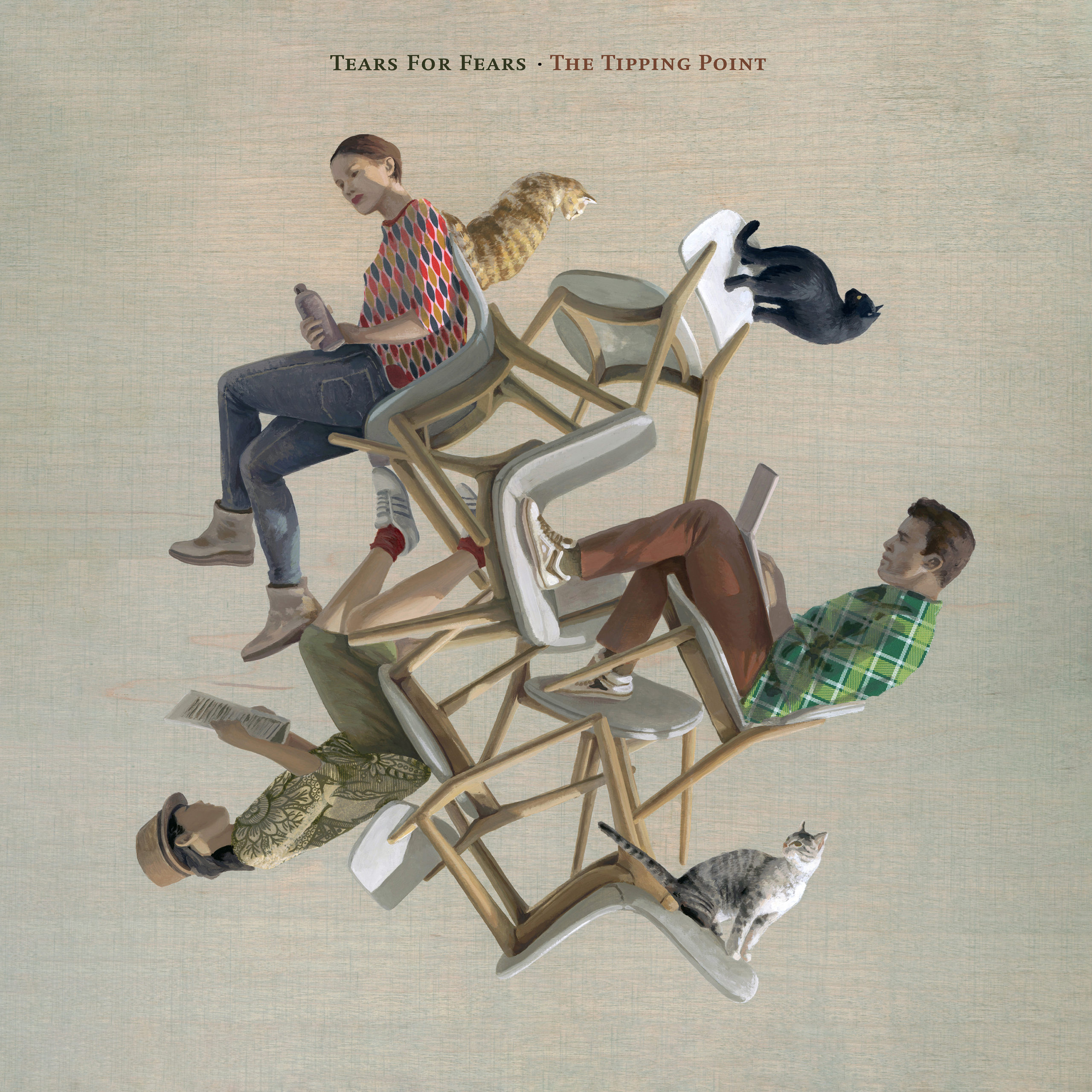
“How is beautiful Boulder?” asked Roland Orzabal a few weeks ago when connected for a brief phone interview.
It is quite common for touring musicians to refer to Boulder thusly, often genuinely as a marker of appreciation for past triumphs and receptive audiences. And sometimes, perhaps, politely playing to our well-celebrated locale-narcissism.
But Orzabal sounded quite sincere, and we soon learned why.
At the time, Boulder was sunny, hot, windy and dry. (This was a week before that freak snowstorm pruned our trees.)
“And how are the fires?”
It’s a day-to-day thing. In fact, we had a small grass fire erupt in our North Boulder neighborhood about a week before, teasing the edges of a sub-development half a mile from where we sat. Someone dumped still-hot barbeque ashes in an open space in the middle of a parching windstorm. It was contained quickly; no one was quite sure what (or whether) the perpetrator was thinking.
But Orzabal was keenly aware of what the community had been through a few months prior.
“We were there last Christmas, and we were driving down the freeway toward Denver … and the police pushed us back because of the fire.”
In fact, Orzabal was at the time in the company of his second wife, Emily, a Denver native and erstwhile Boulder resident, so he knows the area, knows Boulder and its surrounding communities. Personally now invested in this part of Colorado, he understood the ongoing peril so abruptly visited upon us last December.
Orzabal and his musical partner Curt Smith roll their roadshow into Denver on Sunday night, and unlike most of the extensive touring they’d done since reuniting as a team in 2004—bracketing an estrangement that effectively ended their partnership as Tears for Fears in 1991—they will be touring behind an album of new and original material, The Tipping Point.

The road to the new release, however, was far from simple and straightforward.
“We were very happy playing live; we had a great set,” Orzabal says. “We worked hard at putting together a good set, adding new songs. And if an artist came along and did a cover of one of our songs, we’d incorporate that, too. So, for instance, we’d play the Lorde version of ‘Everybody Wants to Rule The World’ before we’d play our own version.
“There was a kind of interweaving of other artists’ versions of our own stuff, and it had a sort of contemporary feel to it, and we were quite successful with it. But without question we came to a stage where we needed new material. And it was really just about what we wanted from new songs; it wasn’t really about making a record. And there were always songs laying about. Songs come along in my life all the time.
“So there was a discussion,” Orzabal continues. “Our manager at the time persuaded us that we needed to be more relevant. I don’t know what that means—needing to be relevant means, I suppose, that you’re irrelevant.”
What emerged from this period was a “Greatest Hits” package, with the added bonus of a couple of new tracks and a handful of collaborations with other artists ostensibly intended to return the band to its sound and tenor of the 1980s.
“‘Well, hang on,’ I said, ‘that doesn’t make much sense,’” Orzabal noted. Relevancy? Smith and Orzabal set about to rework some of the odds and ends that came from that period, rewriting lyrics and arrangements, salvaging the bits they liked and, essentially, coming around to a place where they actually sounded like themselves. And by 2016, they had an album’s worth of material, more or less.
Fate intervened, and Orzabal went through a traumatic period in 2017 when he lost his wife to depression and alcoholism, followed by his own medical challenges the following year.
It is now part of his story, losing his wife, whom he had known since his teen years, a life diversion that I confessed to Orzabal I had experienced myself, 18 years ago. Orzabal was 56. I was 46.
The isolation, the assault on one’s identity. Grief and panic and disorientation. The changes that emerge immediately proximate to your day-to-day life, and the hidden and evolving changes that only reveal themselves months or years later. The changes are permanent, even if one’s conception of permanence itself has been compromised.
It occurred to me, and I asked if the same was true for his own experience, that one aspect of that experience was that you no longer trust yourself. Trust your instincts, trust your abilities, trust your surroundings and your place in your own story.
“No, you don’t. You’re absolutely right,” he said. “And you don’t realize if you’ve gone mad. You’ve had that other person trusting that for you. Though you can make yourself appear and feel sane while that person is going through that, once that other person is no longer there, it all hits you because there’s no one in the way anymore.”
There are few events in life, maybe none, as deeply felt as the loss of a spouse. The record that emerged from the ashes of Orzabal’s tumultuous 2017 and 2018 is tinted, though not uniformly, in a dark way, with references to that period. Much of the album exudes the beautifully crafted pop that infused Tears for Fears’ heyday material of the mid 1980s—the throbbing confidence of “Break the Man,” the poised statement of liberation of “Master Plan,” the oddly sequenced acoustic guitar number “No Small Thing” kicking off the record.
But you can hear it. The buoyantly orchestral title track, glazed with the band’s impeccable vocal harmonies, evoking the image of a hospital room where, as Orzabal puts it, “you are just looking at someone and waiting for the point when they are more dead than alive”; “Rivers of Mercy,” which appeals to a time before chaos and uncertainty; and perhaps most directly, the heartbreaking “Please Be Happy,” about watching someone dissolve into the umbra of an irredeemable void. A wine glass shattering into pieces on a staircase. A scene from a slow-motion tragedy, drawn from real life. A room where the light won’t find them.
I wondered what Orzabal’s comfort level would be, giving life and performance polish to these things—a songwriter who isn’t (and never has been) reluctant to give himself away in song—but isn’t this different?
“We’ve shared a similar experience,” Orzabal said. “I kind of think it’s our job to share these things. You’ll never, ever, be able to communicate how it really felt. You’ll never be able to do that. And you never forget.
“But what we can do—what I think I can do—is make a nice song. That hints, in some way… the beauty of music is that it cuts through the crap in our neocortex and goes straight to our heart. And then they can get a sense.
“‘Please Be Happy,’ I can’t listen to it now. I mean, (I can) sing it, because it’s my voice and there’s a barrier. But when Curt sings it, it kills me. It just kills me.”
Such is the weird energy that traces the circuitry of decades-long collaborations. Smith and Orzabal are quite different people. When Smith left the band in 1991, it seemed a familiar story, one that we might have recognized retrospectively after watching Peter Jackson’s Beatles documentary. There comes a time for many bands that start young, and perhaps most often to those who experience success early on, when partners graduate from youth and they become more possessive of their own artistic assets, less willing to compromise, more invested in opportunities and influences outside the partnership. “Growing up” is both a trite and probably perfect way to describe it.
Many of these broken partnerships are permanently severed. Orzabal and Smith’s weren’t.
“I would say, the journey that I was on, post-grief, I was with Emily. From Colorado. Very different culture from working-class Britain, where you have to have a bit of thick skin. Sarcasm is the common language. You just get used to being not very nice to each other.
“You can see it in the Beatles documentary,” Orzabal says. “That sort of Liverpool humor where McCartney has absolutely no problem in attacking Harrison, even though the person he was really pissed off with was Lennon.
“Emily grew up in a family where there’s just a lot more respect and empathy and kindness. I’ve had to learn that from her. Curt’s been living in America, he’s an American citizen, so he’s probably already there. I’ve had to learn this new way of communicating, learn a new language, and learn not to be so damned defensive. There needed to be a lot of letting go.
“So in terms of collaboration, my first collaboration was with Emily. I’m trading my liberty for that look in her eyes.
“If you’re on your own, you’re poor. You gain riches by interacting and trading with someone else.”
And as far as riches go, Orzabal experienced it full force at the age of about 24, when Tears for Fears’ landmark album Songs From The Big Chair, with hits like “Everybody Wants to Rule the World,” “Shout” and “Head Over Heels,” utterly blew up the pop world. With arrangements, musicality and durability that would humble most contemporaries of the time, it is consistently ranked as one the best albums of the 1980s—were they ready for the ensuing exposure?
“No, but I think we dealt with it in different ways,” Orzabal admits. “I think Curt was more a pop star, I was more of a backroom guy, a co-producer. I guess I identified more with the producer and the engineer, and Curt was more on his own. And he embraced it more fully than I did. He fell into the trappings of that life. The drugs and the blah blah blah. The big house.
“I got through it pretty unscathed, to be honest. I was set on the primal therapy thing, absolute set on it. I remember, and I’ve said this often, I was talking with [former Tears for Fears keyboardist] Ian Stanley, and since I was the main songwriter, he said, ‘Do you realize how much money you’ve made?’ And I said, ‘I didn’t give a fuck, I just needed primal therapy.’ I was completely driven by this spiritual need. The money meant nothing.
“And of course, we were living in the days of 60% tax, so most of the money we made went to the government anyway.”
Contact [email protected] with questions or comments.














